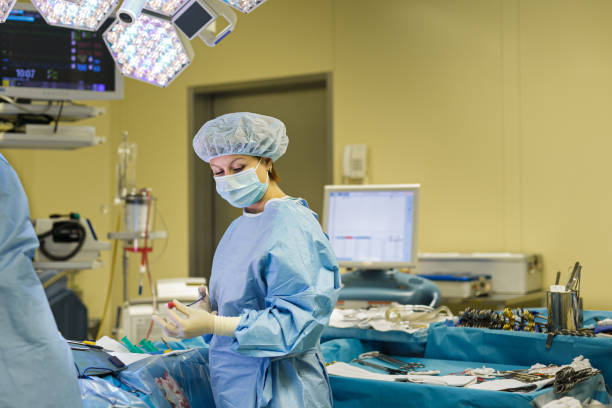
The medical field is constantly evolving and advancing, with new technologies and techniques being developed to improve patient outcomes. Behind every successful surgery is a team of highly skilled professionals, including surgeons, nurses, and an important member who often goes unnoticed – the surgical technician. These unsung heroes play a crucial role in the operating room, ensuring that the surgery runs smoothly and efficiently. In this blog post, we will explore the world of surgical techs and how they help save lives every day.
The Vital Role of Surgical Technologists
In the fast-paced world of the operating room, surgical technologists are the unsung heroes who ensure that every surgical procedure runs smoothly and efficiently. These highly skilled professionals play a vital role in the healthcare system, working alongside surgeons and nurses to provide the best possible care to patients.
One of the key responsibilities of surgical technologists is to prepare the operating room for surgery. They meticulously sterilize and set up all the necessary instruments and equipment, ensuring that everything is in perfect order. From surgical instruments to drapes and gowns, they make sure that everything is ready for the surgeon to perform the procedure. This meticulous preparation helps to minimize the risk of infections and ensures that the surgery can proceed without any delays.
During surgery, surgical technologists assist the surgeon by handing them instruments, sponges, and sutures. They anticipate the surgeon’s needs, making sure that everything is readily available at a moment’s notice. This allows the surgeon to focus solely on the procedure, without worrying about finding the right instrument or asking for assistance. The surgical technologist’s keen eye and quick thinking can be the difference between a successful surgery and a potentially life-threatening situation.
Surgical technologists also play a critical role in maintaining a sterile environment throughout the procedure. They ensure that all equipment is properly sterilized and handle it in a way that prevents contamination. By strictly adhering to infection control protocols, surgical technologists help reduce the risk of surgical site infections and other complications.
Beyond their technical skills, surgical technologists also provide emotional support to patients. They help to alleviate anxiety and stress, providing a comforting presence in the midst of a high-stress environment. Their empathy and compassion make a difference in the patient’s overall experience and contribute to positive patient outcomes.
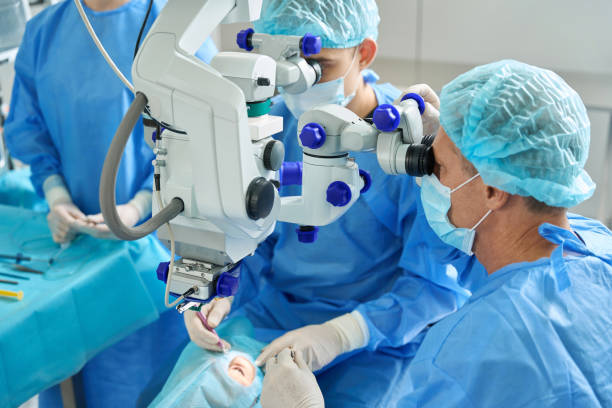
Behind the Scenes: The Extensive Training of Surgical Techs
Surgical technologists are not only unsung heroes in the operating room but also highly skilled professionals who undergo extensive training to perform their vital role. The training of surgical techs is a rigorous process that ensures they are well-equipped to assist surgeons and nurses in delivering the highest quality care to patients.
The journey to becoming a surgical technologist begins with a formal education program. These programs, usually offered at technical or vocational schools, community colleges, or hospitals, typically last 9 to 24 months and result in a diploma, certificate, or associate’s degree. The curriculum covers a wide range of subjects, including anatomy, physiology, medical terminology, and surgical procedures. Students also gain hands-on experience through clinical rotations in operating rooms, where they learn the practical skills required in the field.
Once the education is complete, surgical technologists often pursue certification. While certification is not always required, it demonstrates a commitment to professionalism and excellence in the field. The most recognized certification for surgical technologists is the Certified Surgical Technologist (CST) credential, awarded by the National Board of Surgical Technology and Surgical Assisting (NBSTSA). To become certified, individuals must pass a rigorous exam that tests their knowledge and skills in various areas of surgical technology.
Continuing education is another important aspect of the training of surgical techs. As the medical field continues to evolve, it is crucial for surgical technologists to stay up to date with the latest advancements in technology, techniques, and best practices. They attend workshops, conferences, and seminars to enhance their knowledge and skills, ensuring that they provide the best possible care to their patients.
The extensive training of surgical techs prepares them to handle the challenges of the operating room with confidence and precision. Their commitment to ongoing education and professional development demonstrates their dedication to delivering exceptional patient care. From the sterile preparation of the operating room to the seamless assistance during surgery, surgical technologists are the backbone of any successful surgical procedure. Their extensive training allows them to excel in their crucial role, ultimately contributing to positive patient outcomes.
The training of surgical techs is often underappreciated, but it is a vital component of the healthcare system. Behind every successful surgery, there is a team of highly trained professionals, and surgical technologists are an indispensable part of that team. Their commitment to their craft and dedication to their patients make them true superheroes in the world of healthcare.
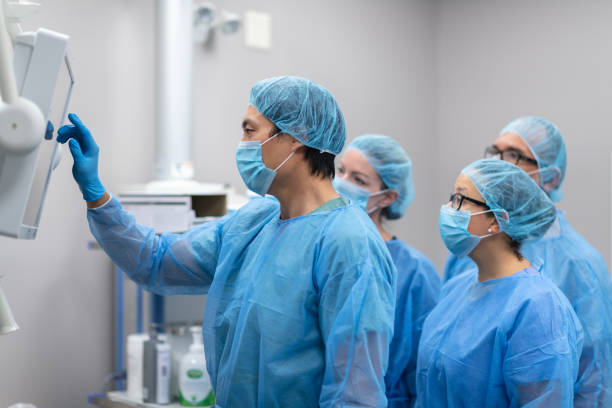
Modern Advancements in Surgical Technology: A Lifesaver
Modern advancements in surgical technology have revolutionized the field of medicine and have become a true lifesaver for patients around the world. These advancements have not only improved patient outcomes but have also made surgeries safer, more efficient, and less invasive.
One of the most significant advancements in surgical technology is the use of minimally invasive techniques. Traditional open surgeries often require large incisions, resulting in longer recovery times and increased risks of complications. However, with the advent of minimally invasive procedures, surgeons can now perform complex surgeries through small incisions or even with the help of robotic assistance. This allows for quicker recovery, less pain, and reduced scarring for patients.
Another game-changer in surgical technology is the use of advanced imaging techniques. Technologies like computed tomography (CT), magnetic resonance imaging (MRI), and ultrasound enable surgeons to obtain detailed and real-time images of the patient’s anatomy. These images provide valuable guidance during surgery, allowing surgeons to navigate complex structures and identify any abnormalities with precision. This has greatly improved the accuracy and safety of surgical procedures.
The development of robotic surgery has also had a profound impact on surgical technology. Robotic surgical systems offer enhanced precision, control, and dexterity, enabling surgeons to perform intricate procedures with utmost accuracy. These systems can also access hard-to-reach areas of the body, further expanding the possibilities for surgical interventions. Robotic surgery has not only reduced the risk of human error but has also made surgeries less invasive, resulting in faster recovery times for patients.
Additionally, advancements in surgical technology have led to the creation of innovative surgical tools and instruments. From advanced surgical lasers to high-definition cameras and specialized robotic arms, these tools have revolutionized the way surgeries are performed. Surgeons now have access to tools that allow them to perform complex procedures with greater ease and efficiency.
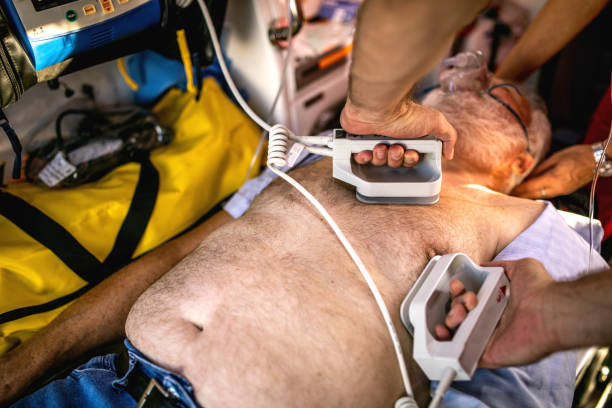
The Everyday Impact of Surgical Techs on Patient Outcomes
Surgical technologists have an everyday impact on patient outcomes that cannot be understated. These unsung heroes work diligently behind the scenes to ensure that every surgical procedure is a success and that patients receive the best possible care.
One of the key ways that surgical techs impact patient outcomes is through their meticulous preparation of the operating room. They sterilize and set up all the necessary instruments and equipment, making sure that everything is in perfect order. This attention to detail helps to minimize the risk of infections and ensures that surgeries can proceed without any delays. By creating a clean and organized environment, surgical techs contribute to positive patient outcomes and a smooth surgical experience.
During surgery, surgical techs play a crucial role in assisting the surgeon. They anticipate the surgeon’s needs, handing them instruments, sponges, and sutures at a moment’s notice. This seamless assistance allows the surgeon to focus solely on the procedure, without any distractions or delays. The surgical tech’s quick thinking and keen eye can make all the difference in a successful surgery. Their ability to anticipate and provide the necessary tools contributes to positive patient outcomes and the overall success of the procedure.
Furthermore, surgical techs also provide emotional support to patients during a high-stress time. They offer a comforting presence, alleviating anxiety and stress for patients. This emotional support plays a significant role in a patient’s overall experience and can contribute to positive outcomes. By providing compassionate care, surgical techs ensure that patients feel supported and cared for throughout their surgical journey.
Overall, surgical techs have an everyday impact on patient outcomes through their meticulous preparation, seamless assistance during surgery, and emotional support. Their dedication to their craft and commitment to delivering exceptional patient care make them true superheroes in the world of healthcare. The everyday impact of surgical techs on patient outcomes cannot be overstated, and their contributions should never go unnoticed or unappreciated.
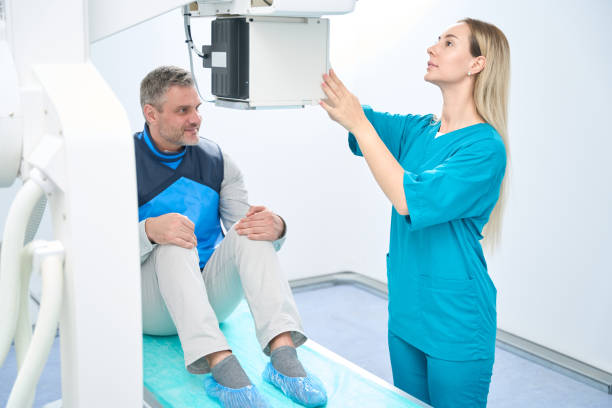
Future Prospects in the Field of Surgical Technology
The field of surgical technology is constantly evolving, and the future prospects for surgical techs are incredibly promising. With advancements in technology and the increasing demand for surgical procedures, the need for skilled surgical technologists is on the rise.
One of the key future prospects for surgical techs is the integration of robotic surgery. Robotic surgical systems have already made a significant impact on the field, but as the technology continues to advance, surgical techs will play an even more crucial role in assisting surgeons during robotic procedures. The ability to operate robotic arms and control the advanced tools and instruments will require specialized training and expertise. As surgical techs become proficient in robotic surgery, they will become indispensable members of the surgical team, contributing to more efficient and precise procedures.
Another future prospect for surgical techs is the incorporation of virtual reality (VR) and augmented reality (AR) technology into surgical procedures. VR and AR can provide surgeons with real-time, 3D visualization of the patient’s anatomy, allowing for more accurate and precise surgical interventions. Surgical techs will be responsible for setting up and maintaining the VR and AR systems, as well as assisting surgeons in navigating and interpreting the virtual or augmented images. This integration of technology will not only enhance the surgical experience but also improve patient outcomes.
The demand for surgical procedures is projected to continue to rise, driven by factors such as an aging population and advancements in medical treatments. This means that the need for skilled surgical techs will also increase. With a growing number of surgeries being performed, surgical techs will have numerous job opportunities in various healthcare settings, including hospitals, surgical centers, and ambulatory care facilities.

In addition to the increasing demand, the field of surgical technology offers excellent opportunities for career advancement. Surgical techs can specialize in specific areas of surgery, such as cardiovascular or orthopedic procedures, which can lead to higher salaries and more specialized roles. Additionally, surgical techs can pursue further education and training to become surgical assistants or even pursue a career in surgical technology education or research.
Overall, the future prospects for surgical techs are bright. The integration of advanced technologies, the increasing demand for surgical procedures, and the opportunities for career advancement make this field an exciting and rewarding choice for those interested in healthcare and making a difference in the lives of cases. As surgical technology continues to advance, surgical techs will remain at the forefront, playing a vital role in delivering exceptional patient care and helping save lives every day.



